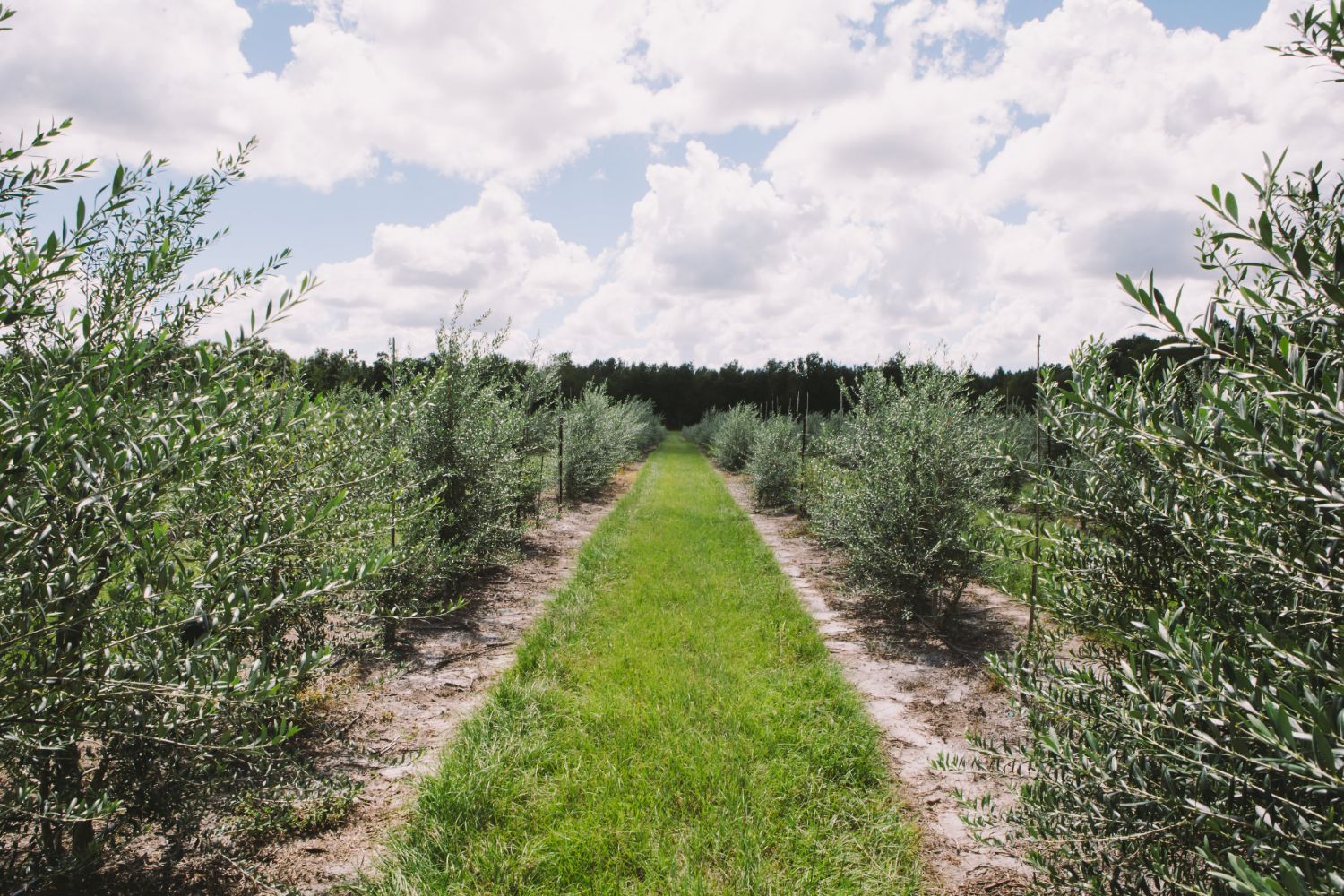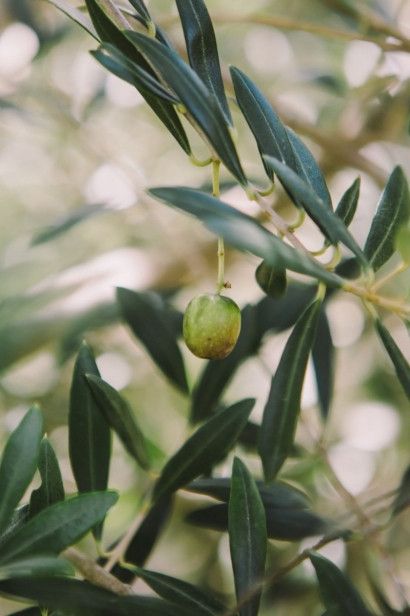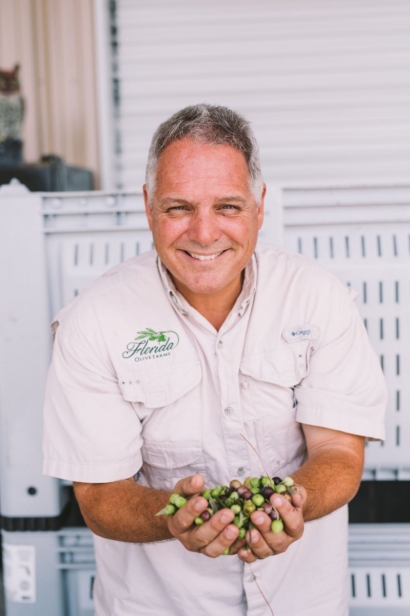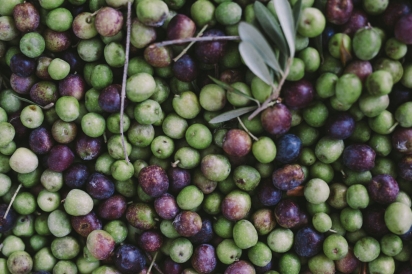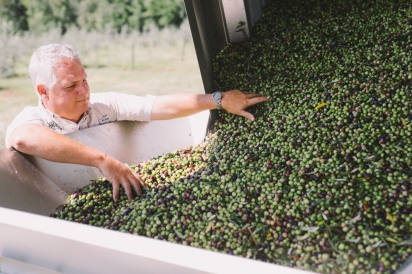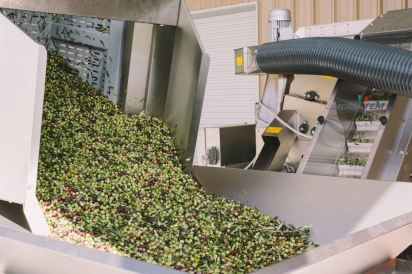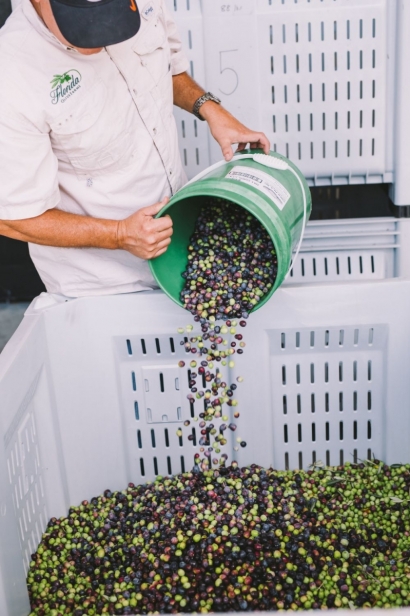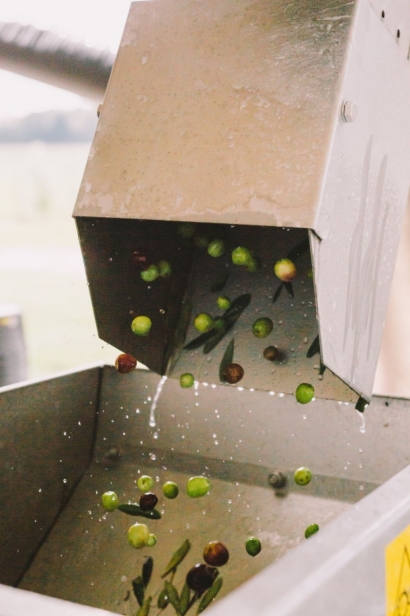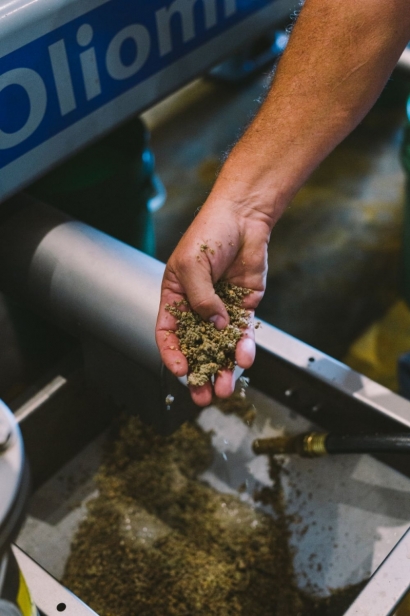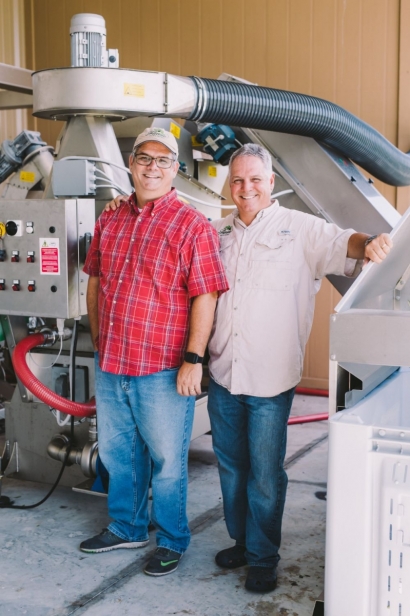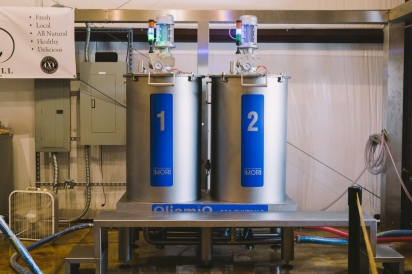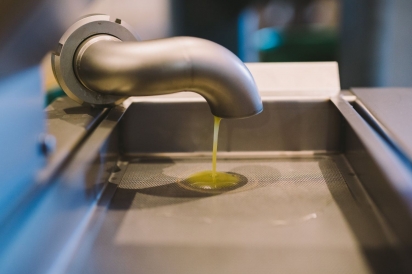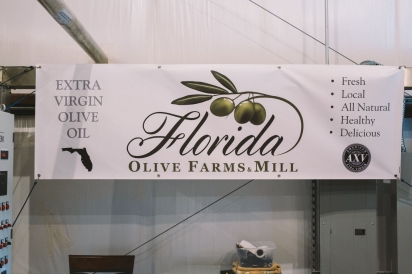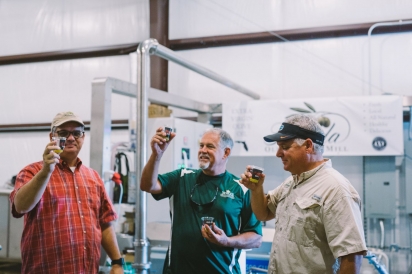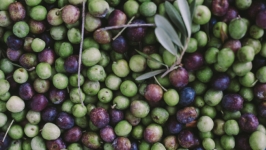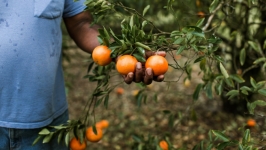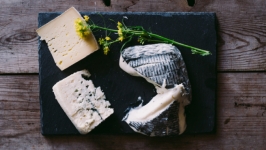A New Grove in Town
Jonathan Carter twists a knob on the stainless steel decanter and pours a bit into a lowball glass, swirling it around to let the liquid warm in his hand. He sniffs it for a moment before shooting it back, sucking in a quick breath of air to spread the flavor around his mouth. The peppery finish makes him cough. This is a prime batch of Northeast Florida olive oil.
This quick taste test reveals olive oil’s kinship to that ubiquitous Florida product, orange juice. Both are juices, really, that come from the fruits of trees. Both are seasonal, perishable and taste best when fresh. Olive farming is relatively new to North Florida, but it’s quickly taking hold, and in a state where greening disease threatens the citrus industry and an entire agricultural way of life, olives may bring hope to stricken farms.
Carter and his brother Stephen are leading the charge at one of Florida’s first olive mills, which specializes in high-quality extra-virgin olive oil. With the initial trees planted in 2012, Florida Olive Farms & Mill is among the first of a growing number of olive farms that have cropped up across the region.
The Carter brothers, natives of Neptune Beach, grew up working on their parents’ timber farms. They initially had little interest in careers in agriculture; after graduating from the University of Florida, they joined corporate America and founded a software company together. But eventually, they felt the pull of the old lifestyle and—call it kismet—bought a freshly pastured lot just across from one of the family’s timber farms in Live Oak.
Why olives? “It was Jonathan’s idea,” says Stephen, laughing. They knew they wanted something less demanding than a tree farm. “We didn’t want to handle timber, we didn’t want a row crop.” When they learned of the Georgia Olive Farms’ success in Valdosta and discovered the economic potential of artisan olive oil, everything came together. The U.S. is already the third-largest olive oil market after Italy and Spain, with annual consumption of over 80 million gallons and growing rapidly. However, Americans produce less than 2% of the oil they consume, a bad sign considering olive oil’s short shelf life.
Florida Olive Farms produces cold-process extra-virgin olive oil in an unheated stainless steel mill without chemical treatments. To achieve their desired quality, the brothers imported their milling equipment from Italy. This proved challenging, as all the dials, levers, buttons and instructions are written in Italian, a language that, unsurprisingly, these North Florida boys do not speak. Fortunately, friends from Italy flew in to help translate and get the equipment up and running.
For olives, freshness is the key to greatness. “You can make great olive oil anywhere in the world as long as it’s fresh,” says Jonathan. It’s a relatively short shelf life product that starts breaking down as soon as the olives come off the tree. At present, the Carters have two distinct blends: White Label Brothers Blend, a robust, peppery oil; and Black Label Mild Brothers Blend, which has a mellow, buttery flavor. Every batch is truly artisanal and varies with each harvest based on fluctuating weather conditions during the season.
Florida Olive Farms’ entry into the business is especially well timed, as confidence in international suppliers has been shaken by widespread fraud and poor regulation. According to journalist Tom Mueller, who has covered the industry for a decade, up to 50% of olive oil sold in the U.S. has been adulterated and 69% of oil labeled extra-virgin fails to meet the standard. As a result, many consumers have no frame of reference for how rich and flavorful the good stuff can be. Just as Americans got used to watery beer and bleached bread, the common conception of olive oil is a thin, enervated fluid best used for coating the frying pan. But olive oil done right, in its smooth, peppery richness, is an entirely different experience. “Once you’ve had fresh olive oil, you know,” said Jonathan.
So far, the Carters and other olive pioneers have been successful in bringing groves to North Florida. This has been welcome news to some citrus farmers blighted with greening, and some have started experimenting with olive crops. However, it is not yet clear how much help olives could be to Florida’s fruit industry. While citrus requires warm weather, olives need an extended cold period to fruit. North Florida’s cooler climates and sandy soil make it good olive country, but there’s a limit to how far south olives can go. As Stephen said, “we’re still figuring out where that line lives.”
In the meantime, Florida Olive Farms’ sales have been brisk, having completely sold out of their products early last season. “The demand has been overwhelming,” said Jonathan. Sourced from the fruit of their fields and that of other area farms within an hour and half’s drive, the pair follow strict processing guidelines and prefer to mill within 24 hours of harvest, a shorter turnaround even than the rigid 72-hour international standard for extra-virgin olive oil. As the seasons pass and their trees produce more fruit, the brothers aim to trim the process down to six hours. Olives, like citrus, are best when freshly squeezed.


